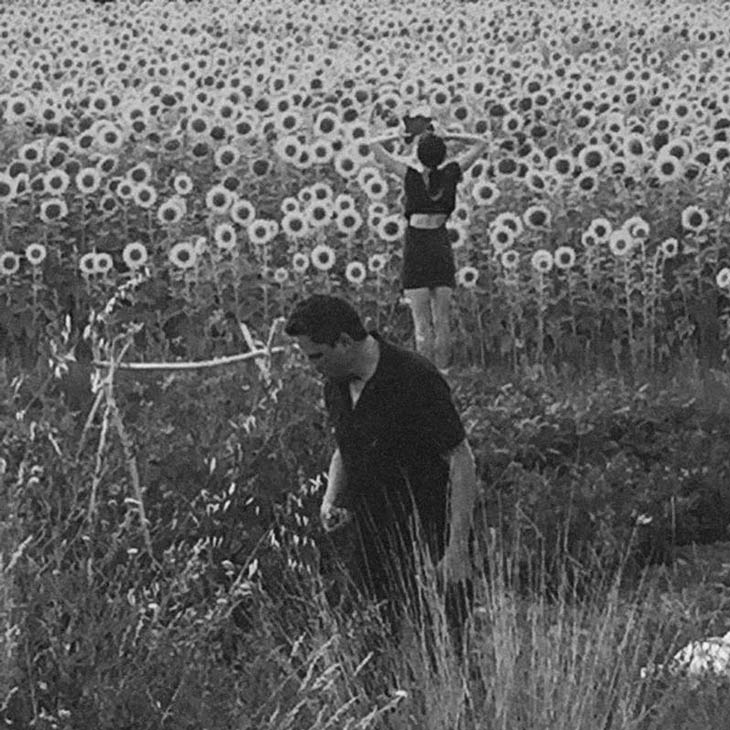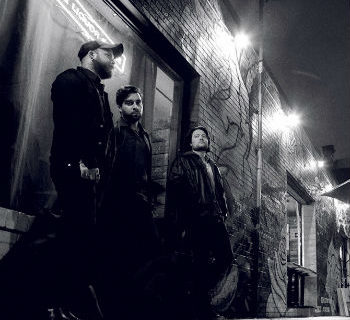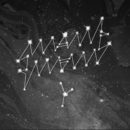Jesu Sun Kil Moon
Jesu/Sun Kil Moon is the collaborative effort of post-metal man Justin Broadrick of Jesu, and folk icon/human being Mark Kozelek of Sun Kil Moon. It is one hour and 19 minutes long. It has 10 tracks. It has some metal instrumentation, and Mark Kozelek’s observational lyrics that focus on absurdly specific minutiae of daily life. There is nothing dynamic about the music: The lyrics are utterly mundane, the music is droning and tedious, and the production is OK at best. There are a lot of ambient moments. The final track is 14 minutes of Mark Kozelek reading his diary over one chord.
So why does this record work so goddamn well? Further, why is it my favorite record of 2016 so far?
I have labored over this question for more than a month since I first listened to this record. I’m still not entirely sure why I find this record so powerful, but I have an idea. Jesu/Sun Kil Moon is the musical equivalent of Ulysses by James Joyce, or À la recherche du temps perdu by Marcel Proust. In some ways, it is more literary than musical.
Joyce’s and Proust’s masterpieces are perhaps the most lasting testaments to Modernist art, and some of my favorite works of literature. They are both obsessed with the humdrum, the banal, the in-between. They explore how those moments that you don’t even remember are ultimately the moments that lead to transcendence. They are themselves transcendent precisely because they are so boring and mundane.
Jesu/Sun Kil Moon follows in the same tradition. Mark Kozelek is obsessed with life as it is. This album is rife with references to trivial daily events such as: going to Best Buy, using Twitter, watching TV with girlfriends, reading fan mail, being upset by bad reviews (enjoy this one, Mark), being sad that famous people have died, hanging out. Being.
These moments, which define the album’s lyrical character, never stray beyond this observational monotony. At no point does Mark Kozelek try to make a statement about these moments, nor does his droning, talk-inflected baritone ever reach heights of emotion beyond what you might expect in an average conversation (minus one notable exception in “Carondelet”). The music stays consistent, driven by small ostinatos that have no dynamic qualities and move forward in a straight line.
Mark Kozelek is obsessed with life as it is.
At first, this is fucking annoying––much like Ulysses or Recherche. I don’t want to hear about a guy listening to a track and feeling OK about it, or practicing guitar, or preparing to watch a TV show because one of his songs is on the soundtrack. I want to hear about the big shit, those grandiose moments that transcend being entirely. I want infinity, I want big bombastic love, I want it all. I don’t want a day in Dublin, or eating fucking madeleines.
Yet I continue to listen. Suddenly those mundane moments are juxtaposed with moments of incredible sadness or ecstasy: the death of Nick Cave’s son; seeing a man who looks like a crackhead connect with the only living thing that cares about and loves him. Although it drones consistently within individual songs, the music’s quality changes on each track: Sometimes heavy distorted guitar, sometimes light ambience, sometimes silence. There’s even a callback to Kozelek’s folk stylings in his use of soft classical guitar on the song about the death of Chris Squire.
And then that final, 14-minute track comes on: “Beautiful You.” It’s a calm, airy, ambient piece. Kozelek talks about his life, and suddenly there is a new meaning, there is a sense of wholeness, of––pardon the platitude––beauty. There is power.
By showcasing his whole life in microscopic detail, Kozelek paints a picture of a man in total. And by the end, as he and I ponder what led to the moments listening to this record, there is a sense of fullness and completion. Closure.
Like Ulysses and Recherche, repeat listens reveal more and more; the marriage of the mundane and the transcendent become more evident. The ride never gets easier, but each time it ends, it transcends and feels whole.
Great art isn’t always easy, or fun; often, great art is fucking annoying. You want to claw your eyes out looking for a point, seeing nothing. But then you get to the end, you see a complete picture and it all feels right. I often have trouble with Ulysses and Recherche, and despite their acclaim, they are widely disliked.
I can see this album being divisive. All the reasons it works are also the reasons it’s awful, and if you’re not of the patient mindset, you’ll have trouble with it.
But the biggest challenges yield the biggest rewards. And this album is rewarding.
Until I’m America’s Most Wanted,
8,790 out of 10,000 Rawckus Kung Fu Throwing Stars













